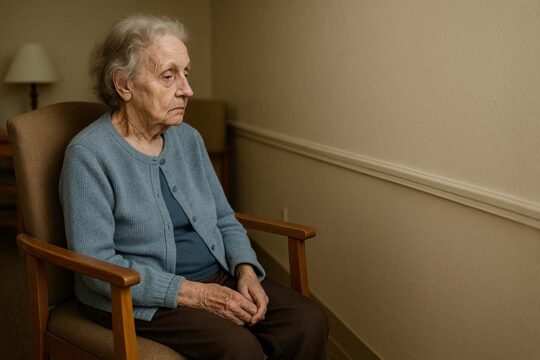
Can a Couple Live Together in Assisted Living?
Considerations for Couples Living Together in Assisted Living
As couples age, they plan to stay together as long as possible, even sharing a room in a nursing home. Many assisted living facilities and nursing homes do allow couples to share space in the facility. However, it’s not always the right choice to have a husband and wife share their living quarters in a nursing facility. Find out more here and help your parents make the right choice for their medical needs.
Can a spouse live in assisted living?
Yes, spouses can live together in some assisted living facilities. Each one determines if they allow or do not allow, so always check ahead of time. However, having your parents bunk together in an assisted living room. Many couples, especially as they get older, rely on one another for companionship and support.
Even if a couple is so close that they finish each other’s sentences, they are unlikely to age in the same way. Differences in age, genetics, or medical history may necessitate more medical attention for one person more than for the other. Life can be complicated at times, and one size (or story) does not fit all.
Additionally, one spouse may expect the other to provide care for them even after moving into a care facility, or one spouse may insist on providing care instead of allowing the care professionals to take care of their spouse. Disparity in care needs can cause tensions between couples who disagree on dealing with their own health concerns or managing their partner’s concerns. Not to mention that one person’s ideal living situation may not be the same as another’s.
Can a couple go into care together?
A couple may be living at home when one spouse begins to decline and requires more assistance with activities of daily living, while the other spouse remains independent. When one spouse begins to experience cognitive decline, the other spouse may require memory assistance. This puts stress and pressure on both people: the caregiver, who must provide support 24 hours a day, and the other person, who may not be living in a situation where all of their physical and social needs are met.
Couples in this situation frequently seek a solution in which they can both receive the care and support they require while continuing to live together. In addition to spouses and partners, adult children who are caring for aging parents want to find options that will keep them together as much as possible. But if both parents require different levels of care, the best option may be for them to separate rooms. They can stay in the same facility but not necessarily in a shared room. This can help to prevent trying to help each other with their needs instead of the nursing staff.
Assisted living for couples with different needs
Many senior living communities can and will accommodate couples in which one person requires a little more care while the other person. By relocating to a senior living community with multiple levels of care, such as independent living, assisted living, and nursing homes, both people can receive the care they require while still living together or in the same community.
Assisted living can provide independent housing and supportive services for someone who requires assistance but does not require constant supervision. These facilities can usually handle varying levels of care for residents. Memory care is a residential setting that provides 24-hour care for people with Alzheimer’s or other dementias. Many facilities welcome spouses, but it may not be the best environment for someone who does not suffer from memory loss.
Nursing homes are for people who need 24-hour medical supervision and assistance with daily activities like eating and bathing. This type of facility is usually only temporary and will not always work for both spouses, especially if one is still quite active. Living in the same facility, many senior living communities provide various care options, allowing couples to be close to each other.
Can married couples live in assisted living together?
When a married senior couple comes to a decision about their health and care, it can be difficult to know what option will have the best outcome. There is no denying, however, that if a couple can move into an assisted-living facility together, living with one another can allow couples to continuously grow closer through new shared experiences.
At least this is true for couples who are willing to change their dynamic and allow others to help them navigate care. While this change may be challenging to adjust to at first, assisted living facilities can accommodate couples’ needs in various situations. For example, when one spouse requires care but the other does not.
What happens if a spouse’s level of care changes?
There are several factors to consider when one spouse’s care needs change. The care facility will do assessments to determine the level of care for each spouse. From there, they can evaluate each person’s unique needs and change their care plans accordingly. The couple may then be separated to different locations to receive the proper care.
Prioritizing care for your spouse
Even if two people have spent their entire lives together, no two people age at the same rate. However, this does not imply that you must live apart. The key is determining the level of care the more advanced spouse requires. So, if one is ready for assisted living and the other can thrive in independent living, then they should both transition to assisted living.
Some people believe that because they have a spouse, they will not require a higher level of care. That can be true if your spouse is willing to provide substantial care. However, this can lead to caregiver burnout, which can harm both spouses’ health. This allows the healthier spouse to focus on being a spouse rather than a caregiver, resulting in a more equal and rewarding relationship.
How much does it cost for a couple in assisted living?
The average cost of assisted living for a couple is difficult to calculate because care needs vary greatly and have a direct impact on pricing. Care can range from as low as $1,800 a month to $6,000 per spouse. For a shared cost, the price may go up or down depending on each unique facility. However, determining the cost of assisted living for couples is difficult because each person has different care needs that may affect the price of services. A tiered pricing model is frequently used in nursing facilities.
Benefits of assisted living with your spouse
If you are on the fence about assisted living or wondering if bringing your spouse with you is the right move, know that moving to a senior living community with your spouse can enrich both of your lives. While there are some potential downfalls, there are benefits too. For example, the couple who have lived so many years together can still see each other daily.
No one wants to go into old age alone, and with the couple together, they can make the most of their retirement with the people they chose. Additionally, neither spouse will have to deal with caregiver stress or burnout. Both spouses will have access to a continuum of care that works specifically for their needs.
Also, when family and friends come to visit, both spouses will get to see the people they care about. However, when the couple needs time alone or does not want to share the infirmities that come with age, they can have separate rooms. Not taking care of each other can allow the romance to continue.
Also Read: Can My Elderly Parent Live Alone?
Potential disadvantages of assisted living with your spouse
When it comes to couples and their personal space, living in the same place where the dynamic changes, you can expect difficulties. One spouse may cater to the other without allowing themselves to be cared for properly. Either could be jealous of nursing staff touching their spouse. Also, both could feel isolated and deal with separation anxiety.
If one of the spouses is miserable in the nursing home, they may make their spouse feel guilty for bringing them there or staying. The other could be enjoying the freedom, but their spouse’s mood and attitude could force them to dislike the new living arrangement.
The mental health of elderly couples may suffer as a result of this separation if they are not in the same room or cannot visit each other in different wards.
Partners frequently have disparate interests and hobbies. For example, one partner may prefer to be physically active while the other prefers to relax with a good book. However, one of the spouses may become emotionally attached to their spouse and not be willing to venture out and meet the other people in the facility.
While spouses mostly wish to retire together, even in a care facility like Stellar Care, one or both may cause complications emotionally for the other, reducing the benefits. Often, the best options are different areas in the same ward once one partner requires more care. Call Stellar Care today and learn about your parent’s choices.
Related Articles
- Fun Activities for Seniors in Assisted Living
- How to Make Assisted Living Feel Like Home
- How to Help an Elderly Person With Depression
- Are Your Elderly Parents Spending Too Much Money?
- Tips for When Elderly Parent Refuses to Take Medication
- When Is It Time for Assisted Living?
- A Guide for Disorientation and Confusion in Elderly
Discover the key differences between retirement homes and assisted living to help you choose the right care for your loved one’s needs.
Learn the risks of leaving a dementia patient alone, legal responsibilities, care strategies, and how to plan for their safety.
Learn why dementia patients wander at night, how to prevent it, and when memory care is the safest option for your loved one in San Diego.
Compare memory care and assisted living, from services and costs to safety and staffing, to find the right senior care in San Diego.



